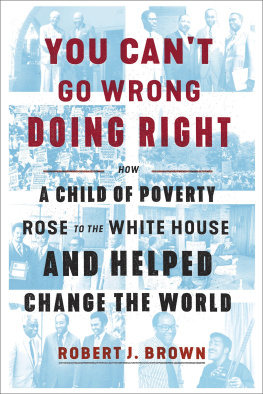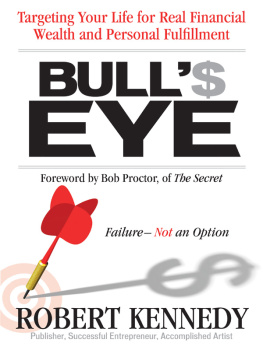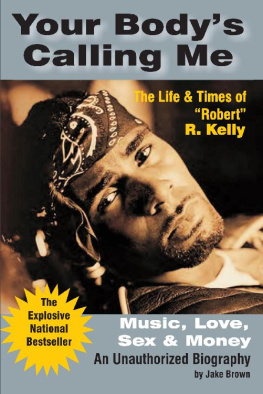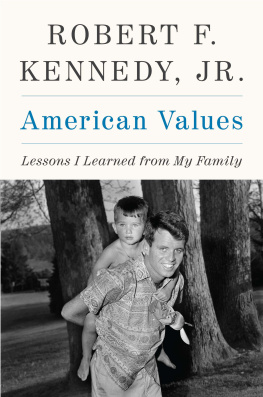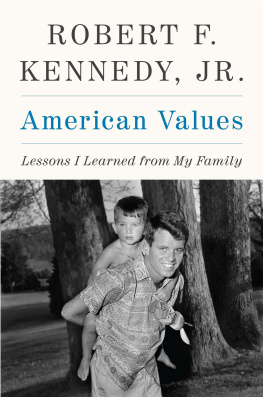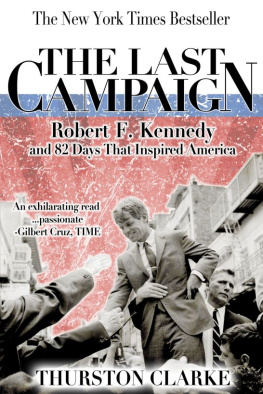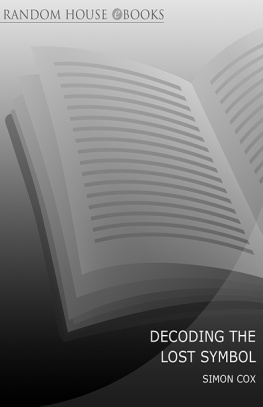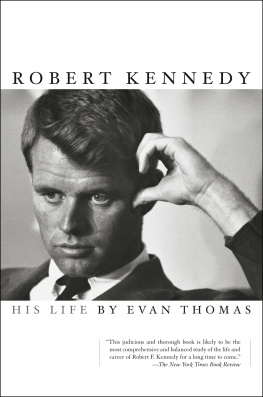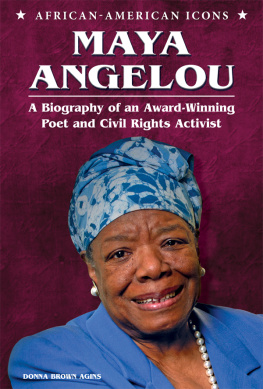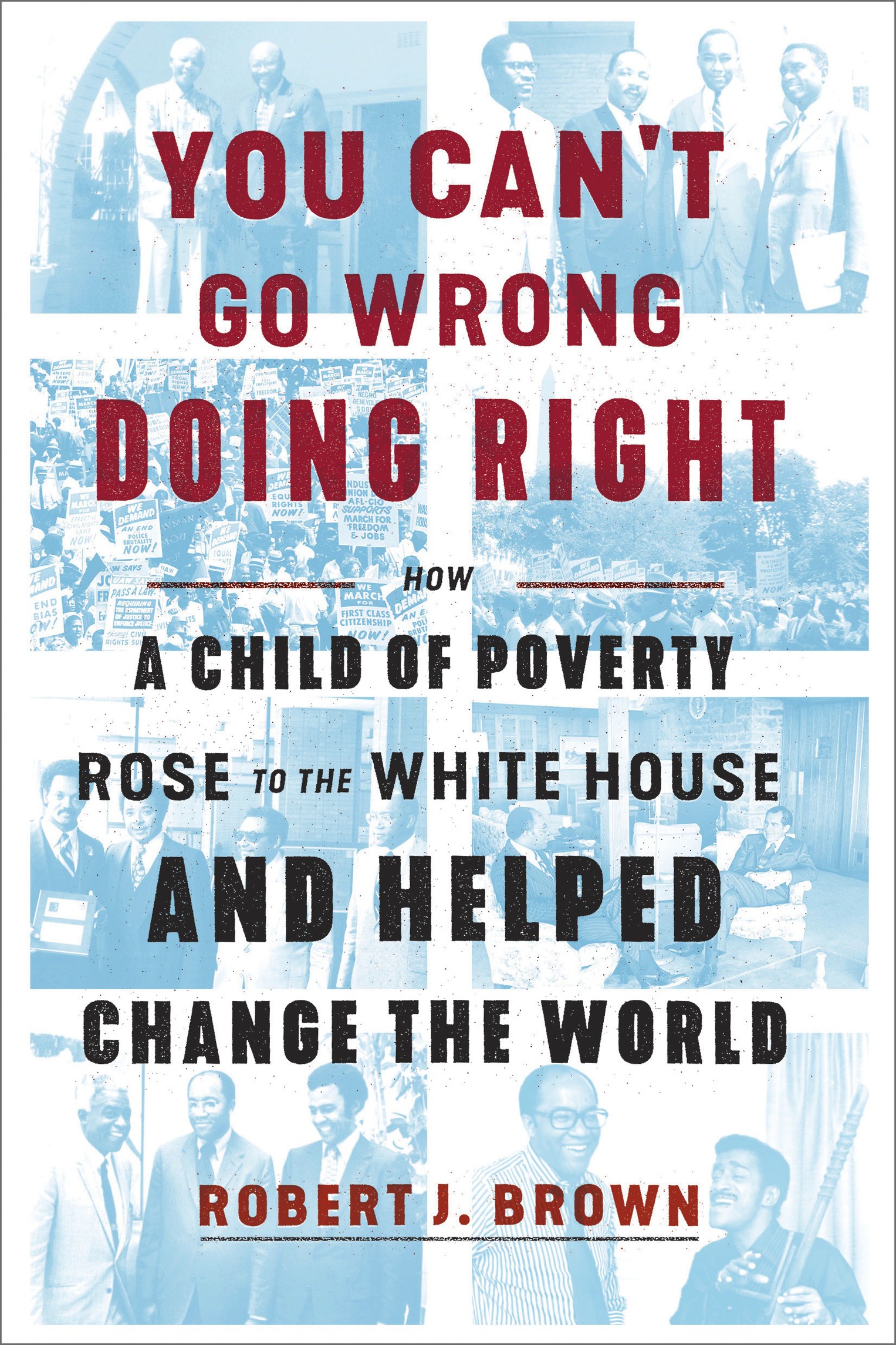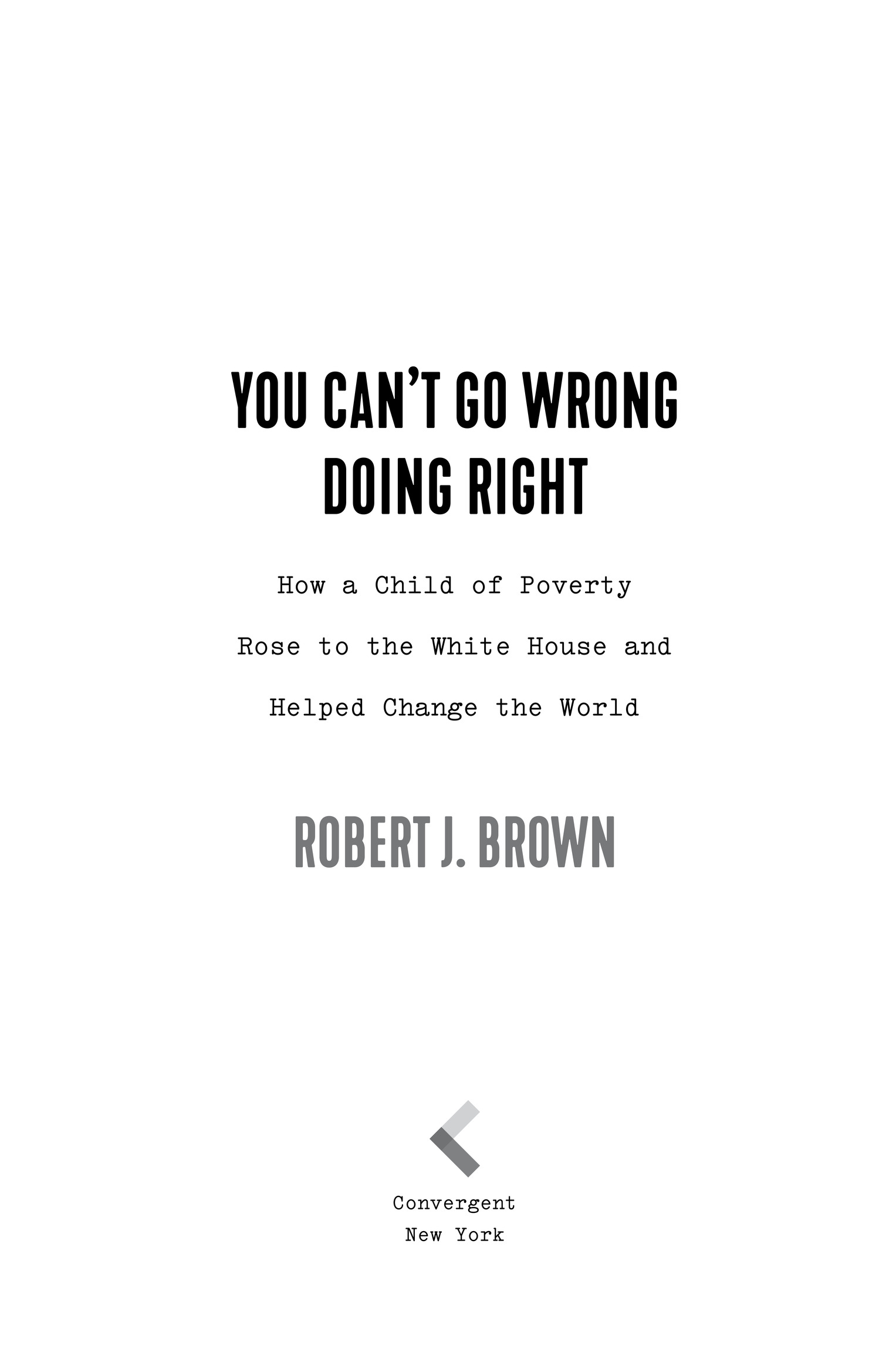All rights reserved.
Published in the United States by Convergent Books, an imprint of the Crown Publishing Group, a division of Penguin Random House LLC, New York.
CONVERGENT BOOKS is a registered trademark and its C colophon is a trademark of Penguin Random House LLC.
Library of Congress Cataloging-in-Publication Data is available upon request.
This book is dedicated to Miss Nellie Brown, my grandmother who raised me and was always Mama to me and my brother. Your unconditional love shaped my life and gave me the courage to believe in myself. In addition, your words of wisdom taught me to trust in God and never lose faith in His purpose for my life. Those words continue to guide me even today.
And to my beloved Sallie, my best friend and wife for 47 years. From our childhoods, you were my soul mate, and the love of my life. All that Ive accomplished and experienced would have been impossible without your wisdom and support. You will forever be in my heart and soul.
Everybody can be greatbecause anybody can serve. You dont have to have a college degree to serve. You dont have to make your subject and verb agree to serve. You only need a heart full of grace. A soul generated by love.
T HE R EVEREND M ARTIN L UTHER K ING J R.
You should be angry. You must not be bitter. Bitterness is like cancer. It eats upon the host. It doesnt do anything to the object of its displeasure. So, use that anger. You write it. You paint it. You dance it. You march it. You vote it. You do everything about it. You talk it. Never stop talking it.
Foreword
I was in my early thirties and still searching for my identity when I first met Bob Brown. Id grown up in a small town, in a working-class family, but Id played basketball in college and in Europe, and Id served overseas in the military. So Id seen some of the world and known all sorts of people, but Id never met a man like him.
Over the years, Ive heard many people say similar thingsthat theyve never met anyone like Robert J. Brown. He is a humble person, yet he is also among the most accomplished and statesmanlike individuals you will ever know.
Oprah and I were introduced to Bob and his wife, Sallie, in the mid-1980s by Dr. Maya Angelou. I was drawn to Bob by his calm demeanor and the confident way he carried himself.
Sallie, who is now deceased, had been Bobs anchor since the second grade. They were a tremendous team.
Though soft-spoken and low-key, Bob radiates intelligence and kindness. I soon learned that he has an extraordinary gift for building lasting relationships across all economic, social, racial, and political lines. He navigates with ease in the halls of power, at backyard barbecues, and through the most challenging crises.
Bob has been a father figure, a mentor, a role model, and a friend to me. He taught me with his words and in his actions that we are defined not by our circumstances but by our possibilities. He helped me develop a greater vision for my life. His influence has made it possible for me to write eleven books, to start and run my own business, and to teach, lecture, and conduct identity leadership workshops around the world.
Bob Brown has been a positive example to many of us. He grew up in poverty, but thanks to the love and support of his grandmother Miss Nellie Brown, Bob rose to become a successful businessman with Fortune 500 clients. During his White House years, he was, arguably, one of the most influential men in the country, African American or otherwise.
Bob has always been a bridge builder as well as a change agent. During his tenure in Washington, DC, he helped lead fundamental and lasting policy changes that have elevated the lives of African Americans and other people. He directed millions of previously withheld federal dollars to historically black colleges and universities. He also fought to promote the first generations of black generals and admirals in every branch of the U.S. military.
Backed by the president and other allies, Bob pushed to create greater educational, career, and financial opportunities for those whod long been marginalized and denied access to the American Dream.
Prior to his White House service, Bob was a valuable asset to the Reverend Martin Luther King Jr. and other leaders of the civil rights movement. After his White House years, he was equally important as a confidant, benefactor, andas you will readfierce advocate for the Mandela family.
Bob Browns efforts to help the Mandela family and the people of South Africa are, themselves, incredible achievements. Many poor children there and throughout Africa have learned to read and expand their knowledge thanks to his BookSmart Foundation and his desire to get books into the hands of those who had no other access to them.
Though he has always operated out of his hometown headquarters in High Point, North Carolina, Bob has had corporate clients including Sara Lee, USAA, General Motors, Coca-Cola, Nissan, Michelin, Lowes, AutoNation, Freddie Mac, Sprint, and De Beers.
In addition, Bob Brown, the great-grandson of a slave, has served on the corporate boards of AutoNation, Wachovia Bank, Duke Energy, Blue Ridge Holdings, and Sonoco Products.
I have often heard people say to him, Mr. Brown, you are one of the most accomplished men no one has ever heard of. Your story should be told. This inspiring book achieves that, and rightfully so. He grew up in difficult times and overcame many obstacles. Knowing him and his accomplishments makes us all want to be better and do better.
I am certain that after reading this historical book, you will agree that we need more people in our world like Robert J. Brown.
Stedman Graham
New York Times bestselling author, speaker, and businessman
Prologue
AN UNEXPECTED VISIT
Pretoria, South Africa, November 1988
A loud knock came on the door of my hotel room, interrupting my packing. Id been in South Africa tending to both personal and business matters, and now I was preparing to go home to North Carolina.
I went to the door and looked through the peephole to see who was there. Two large white men, wearing suits, likely from the feared National Intelligence Service of the apartheid government.
I paused before opening the door to my room, weighing my options. These were dangerous times for black men and women in South Africa. Thousands had disappeared under apartheid rule, in which leaders of the white minority marginalized and terrorized the black majority with murders, beatings, bombings, and torture. The racists in the apartheid government were well aware of my friendship with their high-profile prisoner, resistance leader Nelson Mandela; his wife, Winnie; and other anti-apartheid activists.
All of my instincts told me to be wary. My survival skills were well honedfirst as a black child growing up under Jim Crow laws in the South, then as a police officer in my hometown and as an undercover federal narcotics agent in New York and other urban areas. They were further developed while I worked alongside the Reverend Martin Luther King Jr. and his civil rights warriors during the violent 1960s, and further still as a special assistant to the president of the United States after that.

